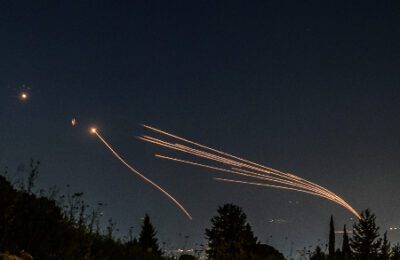Every year we read the story of Noah, the flood, and the ark. But never in our generation have we read this Torah portion as we ourselves living through what can feel like a biblical dimension. While thankfully COVID is not on the level of a plague or a world-destroying flood, it has, nonetheless, at times, felt apocalyptic-ish.
When Noah is told of the impending flood, he follows through and builds the ark. He does not engage in trying to avert the upcoming decree or engage with others about doing all they can to sustain the world as they know it. Noah’s focus is preparation for when he and his family will all be hunkered down in the ark. His default reaction is to prepare for survival.
When news of COVID hit, there wasn’t a rational pause about the big picture and what can be done to help the world; rather, there was a desperate rush to hoard soap, masks, sanitizer, canned goods, rice and, of course, toilet paper. First reaction was: survival. Preparing our own arks.
We just celebrated the holiday of Sukkot, a week when we dwell in a flimsy shelter for one week. This year, the sukkah felt like a sukkah within a sukkah, or a shelter within a shelter, for it had been over half a year that we were anchored to our own “arks,” almost hermetically sealed in our own apartments, houses or pods – protective bubbles deterring exposure to the raging COVID outside. (It will be interesting to think about the parallels between the trauma of Noah’s exiting his ark and our exit from this lockdown, when the time comes).
It’s curious, the prophets of doom in the Bible, whose mission is to foretell and forewarn of upcoming disasters facing the Jewish people (and the non-Jewish nation of Ninveh) — their goal is always to reverse the deteriorated state of civilization or of Judaism that it descended to. The goal is to change, and with it to stave off the upcoming disaster. The goal of the prophecies of doom is for the prophecies to be sabotaged. The goal is repair and repentance. Prophetic doom that does not materialize is the metric of a successful prophet.
We see this idea in the story of Sodom and Gommorah. They did not heed the warnings and correct their corruption. They were ultimately destroyed. We see this in the prophet of tragedy, Jeremiah. His repeated warnings about the possibility of the destruction of the Temple also went unheeded. Despite the warnings, to the great dismay of the Jewish people the Temple was destroyed and the people were exiled.
There’s this paradox in dealing with disaster.
On the one hand, the human race cannot internalize or really believe that scenes of doom can disrupt our way of life as we know it. We are in denial. Part of us just can’t believe, until the disaster is at our doorstep. On the other hand, our vulnerability is exposed. We succumb to fight or flight, and can’t hoard enough, can’t prepare enough, for our survival.
In biblical times, the links between nature, civilization and destiny correlated, or at least, were perceived to be. In our time of a more concealed G-d, the mystery of events, both small and large, leave us more with the mystery. We don’t have prophets of doom, or any prophets gifted with the crystal clear, moral clarity and vision from G-d, who reveal the divine will, the reasons for tragedies unfolding.
The flood was triggered by the disintegration of moral society in the newly created world. Most likely, warnings that went unrecorded came and went before the final flood. While the story of Noah is not an exact paradigm of COVID, I see parallels.
I want to imagine a world, where people do heed those warnings, and do change for the better.
I want to imagine a world, where the prophecies of doom are sabotaged.
I want to imagine a world, where Sodom and Gommorah would not have been destroyed, where Jeremiah’s prophecies would have prevented the burning of the Temple and the exile.
I want to imagine a world, where, if there were angelic whisperings behind celestial veils, COVID would not have been visited upon our generation.
I want to imagine a world, where, like sliding doors, we can choose which one to walk through, which destiny to invite.
But this is the world we have. This is the world we live in. This is the challenge we’ve been given. While it’s desirable to imagine a world without this challenge, or other challenges we’d rather do without, at the same time a part of us deep down is committed to rise to this challenge and vanquish it.
At the end of the day, COVID is a virus. It’s biology. But there are many layers to the narrative.
On a spiritual level, we don’t know why COVID came. Unlike the story of Noah and the flood, where the flood was brought to destroy a world gone wrong, to repair the broken moral stance, we have no idea why the COVID came. Yet, it presents the opportunity to take stock, to reflect on ourselves and our direction. Its a chance to change, to think: What if Noah’s generation had changed, averting or mitigating the flood?
We see enough broken-ness in our world, to know we have to change. We have no prophets to link tragedies or disasters to our behavior. Yet, choosing to vanquish COVID with kindness is our choice to make. While it may not impact the virus itself, it would impact our reaction, our coping with the virus.
It’s something I’m thinking about as it looks like we will remain in our personal arks for the winter —hopefully, in calm waters.
Copyright © 2020 by the Intermountain Jewish News












